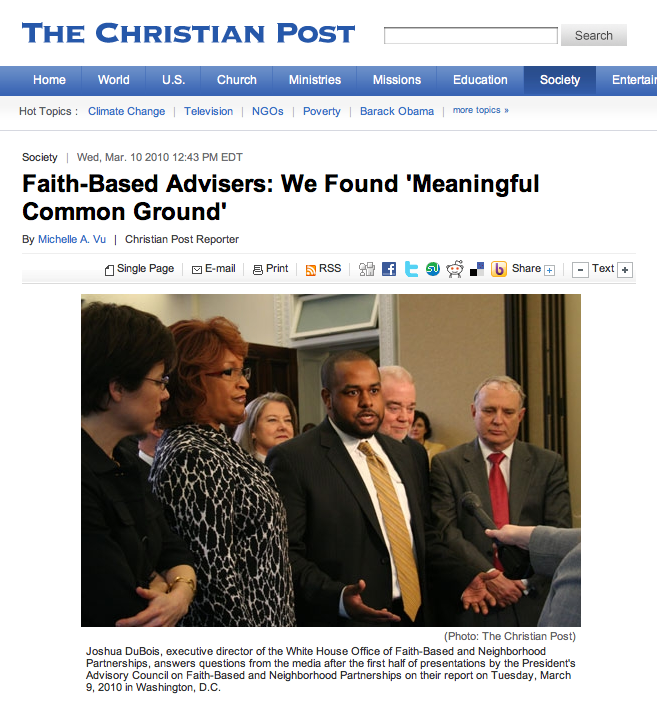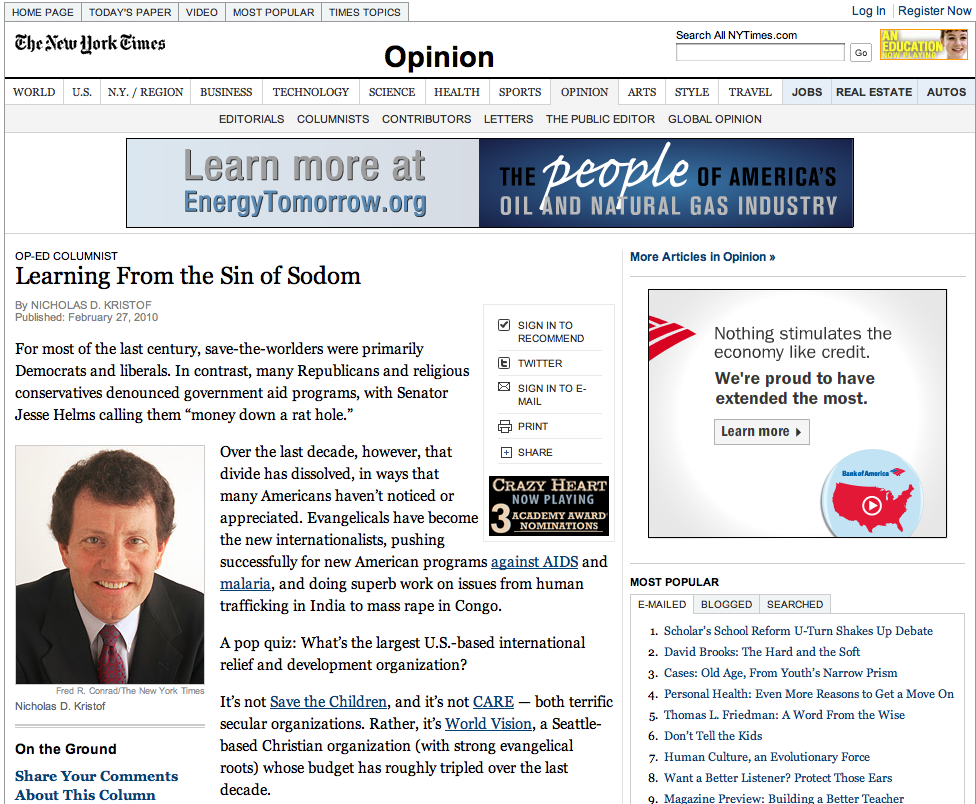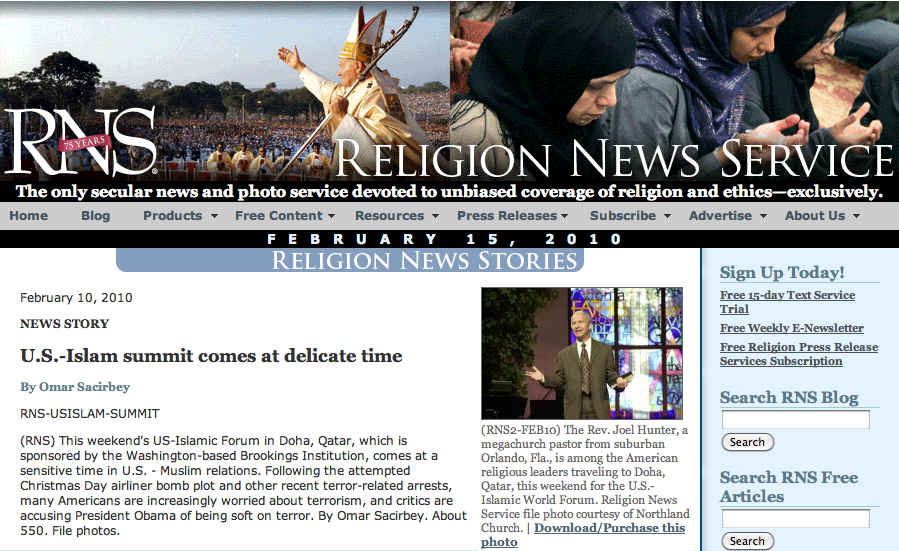Faith-Based Advisers: We Found 'Meaningful Common Ground'
WASHINGTON – We have different opinions, admitted the White House's faith-based advisers on Tuesday when they presented their recommendations. But we were able to find “meaningful common ground,” they added.
After a year of work, the 25 members of the first Advisory Council on Faith-Based and Neighborhood Partnerships presented a report that included more than 60 recommendations for six issues - economic recovery and domestic poverty, fatherhood and healthy families, environment and climate change, inter-religious cooperation, global poverty and development, and reform of the Office of Faith-Based and Neighborhood Partnerships.
The proposals provide suggestions on how the government can better work with faith-based and community groups to tackle major social issues.
“We are a diverse group,” stated Melissa Rogers, chair of the council, at the onset of the event for the report's release. “We differ on matters of faith. We differ in our political perspectives and our philosophical approach. We differ in matter of theology even within our particular faith traditions.”
Yet despite their diverse and strong opinions, she said, the advisers “really listened” to one another and found “meaningful common ground” that went beyond the “lowest common denominator.”
Rogers’ sentiments were echoed by Pastor Joel C. Hunter, an adviser on the taskforce for inter-religious cooperation.
Hunter, who sits on the board of directors for the World Evangelical Alliance and the National Association of Evangelicals, told The Christian Post frankly that he is not usually attracted to such interfaith dialogues.
“I’m a conservative evangelical,” Hunter stated matter-of-factly. “I kind of always shied away from general ecumenical, let’s-all-just-be-nice-to-one-another, kumbaya stuff. Well, that’s not this. This is [about] 'How do we maintain our distinctions, make them even more clear, but at the same time cooperate in a way that makes the world safer?'”
The Florida megachurch pastor said these types of conversations are essential to national security because they marginalize the violent extremists among the people of America and give people who want to be fully engaged in their faith an alternative.
Throughout the event, high-level members of the Obama administration joined the panel for the presentation related to their department. The officials listened to the report and then gave feedback on recommendations and how they plan to use the report.
Health and Human Services Secretary Kathleen Sebelius joined for the report on the economic recovery and domestic poverty recommendations. In her response, she shared about how schools serve as feeding sites for needy children during the school year. But a current problem the country is facing is how to provide meals for the children during the summer. Sebelius said she would like to work with churches and other community organizations to make sure children have somewhere they can receive meals during the summer.
“It (the report of recommendations) won’t just be a document on a shelf,” said Sebelius. “I promise you this document will become an active action plan in the Department of Health and Human Services.”
Though the report, in general, has escaped any big controversy, there have been questions on why the council did not address the hot-button issue of abortion reduction, which President Obama last year said he would like the advisers to work on.
Joshua DuBois, the director of the office, said the council members have been involved in conversations about abortion reduction but did not create a task force for the issue because the president would like to extend the discussion to include the Domestic Policy Council.
Still, pro-life groups such as Focus on the Family say they are disappointed that the council did not present a plan to reduce abortions.
“The president said he wanted to reduce the need for abortions,” said Ashley Horne, federal issues analyst with Focus on the Family Action. “So, that topic would have been a natural fit for this group.”
“It’s one more strike against a president who, so far, has catered only to the pro-abortion agenda.”
Besides the abortion issue, the report has also been criticized for not including religious language. Council member Dr. Frank Page, former president of the Southern Baptist Convention, said he appreciated the work of the advisers but he wished the report expressed the motivation behind why faith leaders care about the issues.
Nevertheless, DuBois said that he is proud of the work the office and its first advisory council has done in the first year. The office under President Obama went directly to faith leaders and community leaders, through the council, and sought their advice on how best to partner, he said.
“The previous initiative largely had a dollar-and-cents vision of their office which caused a lot of controversy,” DuBois said to The Christian Post. “We’re seeking to communicate that when we partner with faith-based groups, it doesn’t have to be about finance. It could be about sharing information with them, about building their capacity, serving as a convener, and we think that will slowly but surely help turn this initiative around.”
The new faith-based advisory council will be installed sometime this spring or summer. Advisers serve one-year terms.
Some of the recommendations made by the council include:
- Utilization of the knowledge, expertise, and on-the-ground experience of local faith- and community-based organizations to redefine the federal poverty guideline so that it more accurately measures and responds to the needs of low-income people
- Support of faith-and community-based partnerships as a means to fill the gaps in providing essential services like transportation, housing, food assistance, job training, education, and healthcare for low-income families and individuals
- Hosting of an annual Father’s Day Celebration at the White House to honor exemplary fathers and to highlight advances in father involvement resulting from the government’s interdepartmental working groups and the strategic partnerships formed at the quarterly roundtables
- Formation of an Office of Faith-Based and Neighborhood Partnerships at the Environmental Protection Agency and assignment of faith- and community-based liaisons to EPA regional offices
- More partnerships with interreligious councils and women of faith networks to advance peace building and development
- Placement of Faith-Based and Civil Society Engagement Officers in USAID missions
- Reduction of barriers to obtaining 501(c)(3) recognition
Michelle A. Vu
Christian Post Reporter
FIND THIS ARTICLE AT: http://www.christianpost.com/article/20100310/faith-based-advisers-we-found-meaningful-common-ground/



 This year’s U.S.-Islamic World Forum, held Feb. 13-15 in Doha, Qatar, comes at sensitive time in U.S.-Muslim relations.
This year’s U.S.-Islamic World Forum, held Feb. 13-15 in Doha, Qatar, comes at sensitive time in U.S.-Muslim relations.


